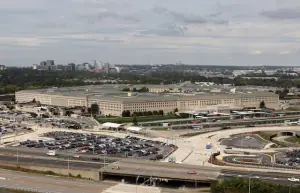Pakistan's rupee slides to another record low against US dollar
2 min readThe ongoing commodity supercycle continued to bite the Pakistani Rupee, which registered a significant fall to drop to another record low, depreciating 0.26% against the US dollar as it approached 179 in the inter-bank market on Monday.
As per the State Bank of Pakistan (SBP), the rupee closed at 178.98 after a day-on-day depreciation of 47 paisas, or 0.26%. This is the lowest the rupee has ever been, after hitting 178.63 on Wednesday last week.
In that week, the rupee depreciated in three of the five sessions, as volatile oil prices took a toll on the currency and it registered a cumulative 0.57% decrease. A minor gain on Friday reduced some of the weekly loss.
The Pakistani rupee has remained under pressure for several months now, with a widening current account and high import bills weakening the local currency.
On top of that, the Russia-Ukraine conflict has pushed oil prices to multi-year highs, which has become a major headache for oil-importing countries like Pakistan and put stress on currencies worldwide.
Oil prices, which remain a major determinant of currency parity, shed as much as $4 a barrel on Monday, extending last week’s decline as diplomatic efforts to end the war in Ukraine were stepped up and the market braced for higher US rates.
Brent crude futures dropped by $3.05 or 2.7% at $109.62 a barrel, and US West Texas Intermediate (WTI) crude futures eased $3.10 or 2.8% to $106.23 a barrel.
“Uncertainty pertaining to rising commodity prices, especially oil and widening current account deficit, is taking a toll on sentiments,” Tahir Abbas, Head of Research at Arif Habib Limited told Business Recorder.
He said that upcoming current account deficit figures for the month of February are expected to be on a higher side i.e. between $1.5-1.8 billion.
“Some quarters are expecting to be even higher and hit $2-2.5 billion,” said Abbas, adding that the exchange rate is factored in this development.
He said that alongside oil prices, rates for other commodities including coal, gold, steel and cement have also shot up, creating concerns of a high import bill.
Abbas said recent measures taken by the central bank to moderate growth is showing results as the country’s non-oil import bill has come down, while “high frequency indicators are cooling off, leading to growth moderation”.
However, it is the ongoing Russia-Ukraine crisis that has pushed up commodity prices, and they will only come down if the geopolitical situation is normalised.
This story was first published in Business Recorder on March 14, 2022.
For the latest news, follow us on Twitter @Aaj_Urdu. We are also on Facebook, Instagram and YouTube.





















Comments are closed on this story.